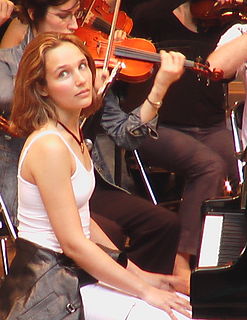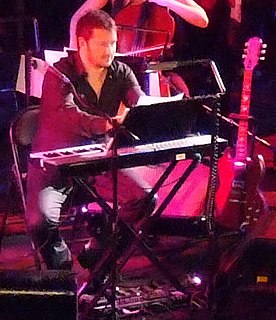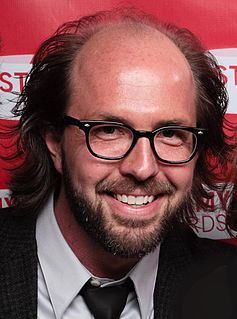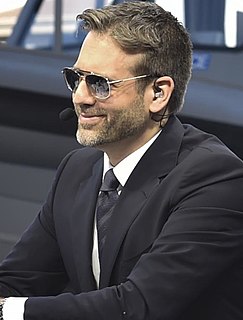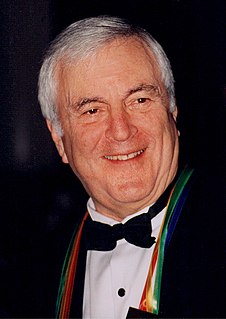A Quote by Harry Connick, Jr.
As you work on something, whether it's a painting or a piece of music, it's going to evolve. A relationship is like that too.
Related Quotes
As you work on something, whether it's a painting or a piece of music, it's going to evolve. A relationship is like that too. I don't have to think, What can I do to spice up my marriage? Because as time goes on, she changes, I change. I'm not married to the same girl I met by the pool. I love this woman more than I loved the person I married, but just in a different way.
There are absences, but there are also presences. It's about how painting can evolve its own abstractions. I didn't know the painting was going to be about that, but it has to have that journey; I have to learn something, I have to end up somewhere I didn't expect to be, otherwise, I don't think it's painting.
I really like to absorb the project and watch it and work on the music a lot and just get the feel for it until eventually a moment comes where I know I've got it. A lot of it is trial and error. Some days a piece of music doesn't work then other day another piece of music finally says something and works with the picture and suddenly casts a light on all the other stuff you've done - probably because my mind is getting to understand it and the piece is educating me. I always feel like the score is in there already somewhere and I just have to channel it and accent it.
I love the idea of engaging the object, whether it be architecture or a piece of good graphic design, or a good painting, or piece of sculpture, or even a piece of industrial manufactured object. A piece of engineering can be quite beautiful, too, or a photomicrograph, or a cosmic photograph. We're physical beings and why deny that. So in that sense, it's very sensual to have an object that has the power to communicate some emotion or a state or give you some sense.
The core of the film [Hunt for the Wilderpeople] is that relationship. Whether they're getting on or whether they're not. If that relationship works, then everything else works as well. And you kind of almost, sort of, gives into a realm of something like New Zealand magic realism... There is no world in which social work is actually pursues some kid into the woods in this manner.
Oh, the foghorns... even the foghorns, they're all brass. It's something by Ingrid Marshal called Fog Tropes. It's not a sound effect. It's an actual piece of music. If you listen to what's going on after he has a flashback about his wife you'll hear... it sounds like the humpback whales in a way. But it's all music. And we use it again later, too.
After 10 years, I have been touring for 20, playing basically the same type of music, a four-piece or three-piece type of music with loud, crashing drums and screaming vocals. It gets to the point where you're looking for something new, and you don't want to do something that's way too left-field, for fear that it might seem contrived.



